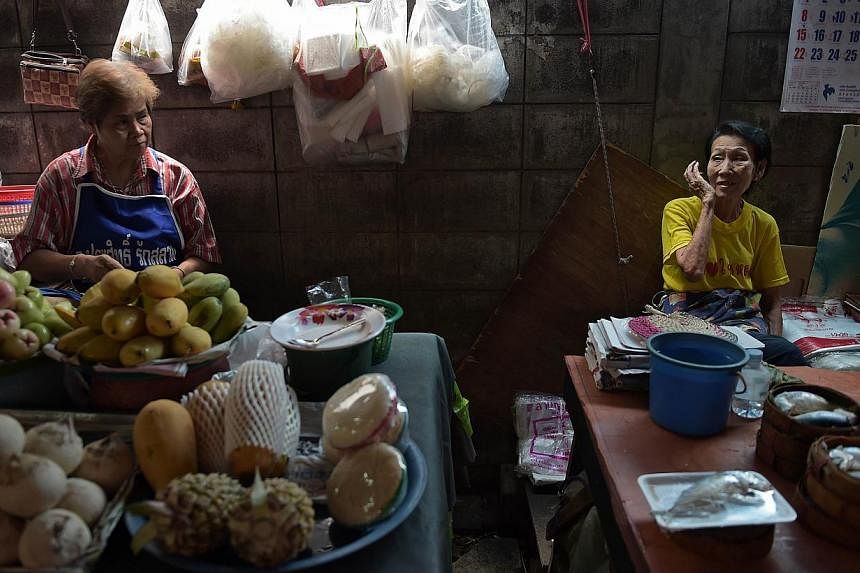BANGKOK (Reuters) - Thai exports fell more than expected in February, showing that a key growth engine for the country is still sputtering, but imports surprisingly rose for the first time in five months.
The military took power in a coup last May to end political unrest and get the economy going, but growth last year was just 0.7 per cent.
Thai exports have been weak since before political tensions began in late 2013, while domestic demand remains sluggish and big public infrastructure projects have yet to get under way.
Exports, which equal more than 60 per cent of the economy, declined 6.14 percent in February on the year, the Commerce Ministry said on Wednesday. That was the biggest drop in six months and nearly twice the decline projected in a Reuters poll.
With disappointing exports in early 2015, "the outlook is not so good," said Sarun Sunansathaporn, economist with Tisco Securities in Bangkok. "Thailand's economy is facing a downside risk."
The ministry blamed slow global growth and said the baht's strength against the currencies of trading partners was another factor.
Tim Leelahaphan, economist at Maybank Kim Eng, cited low commodity prices and how trading partners "are not doing so well".
Exports to China fell 15.1 per cent, while those to Japan were off 11.7 per cent and ones to Europe by 4.7 per cent. Shipments to the U.S. rose 5.1 per cent.
Agricultural exports slipped 12.5 per cent - led by rubber's 39 per cent plunge - and those of industrial goods dropped 3.7 per cent.
February imports increased 1.47 per cent from a year earlier, with capital goods up 3.9 per cent and consumer goods 31.6 per cent. The Reuters poll had seen a 1 per cent drop in imports to follow January's 13.6 per cent tumble.
Exports fell in 2013 and 2014, a big drag to economic recovery. The central bank last week trimmed its 2015 export growth projection to 0.8 per cent from 1.0 per cent.
Slumping global commodity prices have also hit the economy, eroding farmers' spending power.
For 2015, the government expects GDP growth of 4 per cent but the central bank last week cut its estimate to 3.8 percent from 4.0 per cent.
With the weak data, Sarun of Tisco said there is "a very high probability" of one more rate cut this year. The Bank of Thailand's monetary policy committee this month surprised with a 25 basis point cut in the benchmark rate, to 1.75 per cent.

